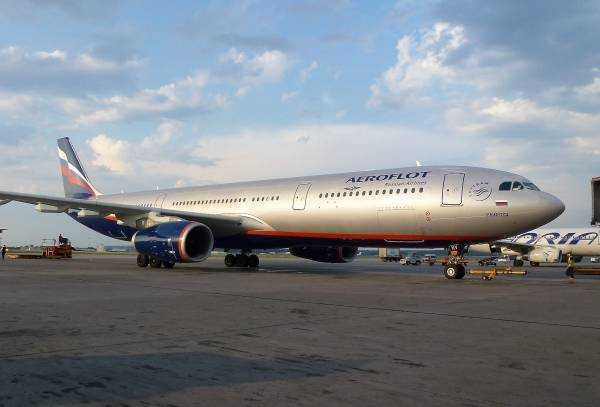Since 2015, Israel has been experiencing what experts and authorities are calling a "tourism boom." The number of foreign tourists in the country has grown from 2.5 million in 2015 to 3.6 million in 2017. In many popular areas, hotel room rates have risen due to increasing demand and a relative shortage of new hotel facilities, including budget ones, reports Hhotel Management.

In 2008, the number of foreign visitors to the country reached 2 million, and Israel's hotel room inventory stood at 49,000. Today, the country's hotels offer 55,000 rooms, a 12 percent increase from 10 years ago.
Focus on Tel Aviv
In a recently published global study by Mastercard Tel Aviv was named one of the top 10 cities for vacations. The study found that the average length of stay for tourists in Tel Aviv last year was 7.9 nights, with an average daily guest spend of $142.

Airbnb currently offers 8,000 apartments. In Tel Aviv, this represents almost half of the entire Airbnb inventory in Israel, which totaled 16,196 apartments in the country in 2017. The average apartment rate in 2017 was $160 per night, compared to $150–$180 for a three-star hotel (in high season). This explains why approximately 50 percent of overnight stays in Tel Aviv are through Airbnb.
Meanwhile, in 2017, the average annual occupancy rate of the city's hotels was 74 percent., and in 2018 this figure is expected to increase to 78–79 percent.

Tel Aviv needs an additional 5,000 new hotel rooms over the next five years, according to experts.
Hoteliers understand that Competition with Airbnb cannot be avoided here, but at the same time they are asking the authorities to regulate this market in the same way as has been done in other cities in Europe and the United States, including Barcelona, Spain, Amsterdam, London, Paris, New York and San Francisco.
According to analysts, the main reasons for the shortage of new hotel stock The challenges facing Tel Aviv include: high land prices in the city, the active use of land for offices, the lack of bank financing for new hotel projects, a growing land shortage in the main areas of Tel Aviv, and a high level of regulation and bureaucracy in the industry.

Over the past decade, most, if not all, new hotels in In Tel Aviv, they used previously constructed buildings: offices, police stations, post offices, printing houses.
For example, the former Clal Insurance office was converted into the NYX Tel Aviv hotel. The Amidar office building was converted into the Dan Link Link & Hub hotel, and the luxurious Luxury Collection Hotel is an old monastery.
The main reason why hotel companies prefer to use Bureaucratic red tape is a common practice for companies using existing buildings for their projects. Resolving the issue of building a new hotel in Tel Aviv can take seven to ten years.

The shortage of affordable hotel rooms and available land has become a source of concern for the Israeli Ministry of Tourism and Tel Aviv municipal officials. As a result, the Israeli government has approved grants for developers converting city offices into hotels. The grant amount is 10 percent of the project's investment. The grant ceiling for developers in Tel Aviv is estimated at approximately 25 million shekels. The building must be no less than 2,000 and no more than 20,000 square meters, and the hotel must be rated no higher than 3-star.
A government grant scheme offering additional opportunities for investors has already contributed to increased investment in Israeli real estate. Approximately 35 projects received grants totaling approximately $50 million last year. These incentives allowed for the addition of approximately 2,570 additional rooms to the total hotel inventory, a 33 percent increase over the previous year.

According to the leadership of the Ministry of Tourism, possible disadvantages The plan to convert the buildings into hotels is based on the rental options available to the owners of these office spaces. Tel Aviv currently has no oversupply of office space, the tech sector is still growing, and many international companies are looking for locations in Tel Aviv.
Moreover, banks and financial institutions feel more confident in office space than in hotels. Therefore, office buildings offered to hoteliers may be located far from high-demand areas and major tourist attractions.
Market outlook
According to forecasts from the hospitality consulting company HVS, the Israeli hotel market is expected to experience another (second) year of active growth, as the number of visitors to the country continues to grow.

Most tourists visiting Israel come from the United States, Russia, and France. Meanwhile, the number of visitors from Germany, China, Poland, and Romania is also growing.
HVS predicts a positive future for the Israeli hotel market, as the country is set to become an even more accessible and popular destination in the near future.
“Last year, for the first time in Israel’s history, the number of visitors reached three million,” Russell Kett, chairman of HVS, said in a statement“The driver of this growth was a combination of geopolitical stability, successful marketing, a large-scale celebration of the 50th anniversary of the reunification of Jerusalem, and the introduction of additional air routes.”

Thus, in Jerusalem, the number of overnight stays in hotels by foreign tourists increased by more than 30 percent, in Haifa by 28 percent, in the Dead Sea region by 22 percent, and hotels in Eilat increased by 16 percent.
As a result, hotels in Israel saw their ADR (average daily rate) increase from $203 in 2016 to $209 in 2017. RevPAR (average revenue per available room) also increased by 11 percent during this period, reaching $$151.

According to Russell Kett, The country's hotel sector today mainly consists of five-star and four-star hotels, with the boutique hotel segment growing.
“However, as Israel celebrates 70 years since its founding this year, the country’s hotel sector is expected to become much more vibrant and diverse than it is now, as both local and international hotel operators strengthen their presence in the destination,” he added. Lionel Schauder, HVS representative.

According to the expert, budget hotels and hostels remain untapped markets. Meanwhile, low-cost airlines have already become the norm in the country, meaning growth in this sector is not far off.
Source: trn-news.ru













